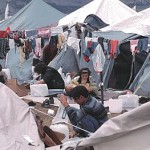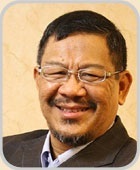 diasporaNet – Diaspora Research Network
diasporaNet – Diaspora Research Network
The Jaffray Centre’s Diaspora Research Network, diasporaNet, explores the missiological related issues associated with the various global diaspora—“people on the move.” The diaspora (or scattered) refers to peoples dispersed from their homeland, who of necessity have had to relocate to another part of world. The diasporaNet brings together practitioners and theorists from a variety of disciplines and walks of life to examine common concerns that affect these scattered peoples. Join us as we explore this significant 21st century trend by contacting us at jaffray@ambrose.edu .
“Diaspora missiology” has emerged as a biblical and strategic field of missiology and is defined as: a missiological framework for understanding and participating in God’s redemptive mission among people living outside their place of origin. Seoul Declaration 2009
Convener Dr. Sadiri Tira (Joy) serves as the Lausanne Movement’s Senior Associate for Diasporas, and the Global Diaspora Network Chairperson. He is also Vice President for Diaspora Missions for Advancing Indigenous Missions. In 2011, Joy joined the Alliance Graduate School in Manila as director of the Institute of Diaspora Missiology, and also the Jaffray Centre for Global Initiatives at Ambrose University College and Seminary in Canada as Diaspora Missiology Specialist. Joy received his theological and ministry training from Western Seminary (D.Miss.) and Reformed Theological Seminary (D.Min.). Join Joy as he moves with the “scattered peoples”. He blogs on EvangelVision.
Read about the Global Diaspora Forum in Manila, March 24-27, 2015 here. (Also see Press Release.)
From Global Villages to Global Apartments: Intentional Living in Global Cities
Resources:
Blog Posts By Dr. Sadiri Joy Tira
EvangelVision: Inspiring the Church to be a winsome witness for Jesus – (The Billy Graham Center for Evangelism (BGCE) at Wheaton College)
White, Peter … “Diaspora Missions Strategy: Reaching the millions of people on the move in a borderless world” (CMAlliance.ca Magazine Fall 2009)
The Heart Of The Gospel: A response to Samuel Escobar’s ’Migration and Ethnic Conflict by Sadiri Joy Tira
— Responses to ‘The Heart of the Gospel’ article can be found here.
A Diaspora Mission Strategy for Local Churches by Sadiri Joy Tira
The Seoul Diaspora Missiology Declaration
Toronto Demographics (Also see: “Diversity” in Toronto)
diasporaNet
Jaffray Diaspora Research Network (JDRN)
“A Network for People on the Move”
My neighborhood might be a lot like yours. A microcosm, you might say, of what’s been going on in neighborhoods all across Canada—in fact—in neighborhoods around the world. Walk down my street and you’ll meet my neighbor James from Ethiopia who lives next door to Beatrice born and raised in India. She lives just three doors down from Sunni who came from Korea. On my side of the street and a few doors from my house is my neighbor Sammy who came from Malaysia and he and his family live across the street from Carlos and Pillar who several years ago moved from Colombia.
My story of neighborhood diversity is likely similar to yours—or it will be. Over the past few decades, Canadians have witnessed a significant change in their neighborhood  demographics. Gone are the somewhat characteristic Caucasian homogeneous neighborhoods which are being replaced by the ever expanding eclectic multi-ethnic neighborhood. You’re also likely familiar with the fact that this global shift is the result of a variety of factors—not the least of which is the unprecedented migration of people from the global south, northward and from the global east, westward. Take Toronto for an example. Fifty percent (50%) of its citizens report being born outside of Canada. Toronto has become the world’s most cosmopolitan city.
demographics. Gone are the somewhat characteristic Caucasian homogeneous neighborhoods which are being replaced by the ever expanding eclectic multi-ethnic neighborhood. You’re also likely familiar with the fact that this global shift is the result of a variety of factors—not the least of which is the unprecedented migration of people from the global south, northward and from the global east, westward. Take Toronto for an example. Fifty percent (50%) of its citizens report being born outside of Canada. Toronto has become the world’s most cosmopolitan city.
It is precisely this changing reality that the Jaffray Diaspora Research Network (diasporaNet) seeks to examine. diasporaNet recognizes that the 21st century world in which we live and serve is radically different than that of our parent’s. Our curiosity over this global phenomenon is what has prompted the Jaffray Centre to develop the diasporaNet as a means of bringing people together to examine the implications of this trend on service and ministry in the 21st century.
What we do: The Jaffray Centre Diaspora Research Network (diasporaNet) explores the missiological (… that’s the theological, historical, behavioral science) related issues associated with the various global diaspora—“people on the move.” The diaspora, (or scattered) refers to a people dispersed from their homeland and who of necessity have had to relocate to another part of world.
 In an effort to explore nuances and implications of this trend, the Jaffray Diaspora Research Network (diasporaNet) brings together practitioners and theorists from a variety of disciplines and walks of life. Together they examine common concerns generated by various service/ministry initiatives, associated academic disciplines and the research generated by studies in global migration, transnationalism and missiology.
In an effort to explore nuances and implications of this trend, the Jaffray Diaspora Research Network (diasporaNet) brings together practitioners and theorists from a variety of disciplines and walks of life. Together they examine common concerns generated by various service/ministry initiatives, associated academic disciplines and the research generated by studies in global migration, transnationalism and missiology.
How we do it: The Jaffray diasporaNet draws together people to …
- … engage in research that contributes to the emerging biblical, theological and strategic research in the area of “diaspora missiology.”
- … provide forums and colloquia that encourage greater understanding of God’s
 redemptive mission among people living outside of their places of origin.
redemptive mission among people living outside of their places of origin. - … explore and publish findings on the implications of the diaspora movement on the church in Canada and around the world.
- … understand the impact that migration has on the individual and the tension created by the shifting dynamic relationship each has with their homeland and their host nation.
- … create a hub for research and information that the Ambrose community can contribute to and be influence by—as they examine the diaspora through a missiological (theological, historical, behavioral science) matrix.
- … add an important aspect to Ambrose University College and Seminary’s national and international focus by encouraging Ambrose students to connect to this evolving trend in Canada and around the world.
 Jaffray Convener
Jaffray ConvenerDr. Sadiri Joy Tira
Sessional Faculty—Ambrose
Jaffray Diaspora Missiology Specialist—Jaffray Centre
150 Ambrose Circle SW
Calgary, AB. T3H 0L5
Canada
403.410.2000 x3397
jaffray@ambrose.edu
Courses
Dr. Tira teaches diaspora modules at Ambrose biennially, such as the following. Please contact us at jaffray@ambrose.edu if you are interested.
WM 613 Third Millennium Trends and Issues: Understanding Diaspora Missiology: The Biblical, Theological, Missiological, and Ecclesiological Implications
Diaspora Missiology is fast emerging discipline in Missiology. This course examines the biblical and theological foundation and its missiological framework ( i.e. perspective, paradigm, ministry pattern, and ministry style). Local congregations must be aware 21st Century realities ( e.g. mass migration) and position their ministries in the context of our “borderless world.” !00 years ago the church did missions by “going, sending, and coming” but in our age of global migrations and high speed mobility in technology and travel, missions is now conducted from “everywhere to everywhere!”
Five reasons why pastors and lay leaders in Canada should take a course on Diaspora Missiology at Ambrose University College:
1. The 21st Century realities such as massive global migration resulting in escalated urbanization, the advent of transnationalism and the creation of multicultural communities, and mergers of ideologies in pluralistic societies. This is the context of the local churches today and leaders must be aware of these realities in order to lead, to be effective, and to remain missional.
2. Canada’s demographic face is fast becoming “multi-coloured” with pundits predicting that by 2030 the traditional majority composed of Anglophones and Francophones will be replaced by a majority of “new immigrants” from the global south. How do we prepare our congregations for such sociological and demographic shifts?
3. Diaspora Missiology (DM) is a new response to these 21st Century realities. Diaspora missiology” has emerged as a biblical and strategic field of missiology and is defined as: a missiological framework for understanding and participating in God’s redemptive mission among people living outside their place of origin. (Seoul Declaration 2009). Acquire ministry tools and resources.
4. Learn from seasoned reflective practitioners who are taking the course. They will provide case studies and effective ministry models.
5. The courses are offered in modular formats of five days’ intensive study at the Ambrose University College campus. Courses can be taken for seminary credits or audit. Students can be accommodated at the Ambrose residence on a first-come first-served basis.